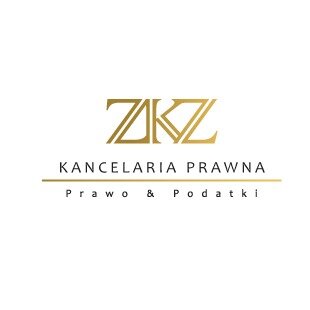Best Antitrust Litigation Lawyers in Poland
Share your needs with us, get contacted by law firms.
Free. Takes 2 min.
Or refine your search by selecting a city:
List of the best lawyers in Poland
About Antitrust Litigation Law in Poland
Antitrust litigation in Poland refers to legal proceedings concerning violations of competition law. These laws are designed to protect free competition in the market by prohibiting actions such as price fixing, abuse of a dominant market position, and unlawful mergers or acquisitions. The primary aim is to ensure that businesses compete fairly and that consumers benefit from a wide choice of goods and services at competitive prices. Antitrust litigation can involve cases brought by governmental authorities as well as private parties who have suffered harm due to anti-competitive practices.
Why You May Need a Lawyer
Many individuals and businesses encounter complex situations where legal guidance in antitrust matters becomes essential. Common scenarios include being accused of violating competition law, suspecting competitors of unfair market behavior, facing investigations by competition authorities, or needing advice when entering into commercial agreements that may have competitive implications. Lawyers help in understanding the scope of the law, representing clients in court or before authorities, preparing strategic defenses, and ensuring compliance to avoid costly penalties.
Local Laws Overview
Polish antitrust law is primarily governed by the Act on Competition and Consumer Protection, which is administered by the Office of Competition and Consumer Protection (Urząd Ochrony Konkurencji i Konsumentów, UOKiK). This law prohibits practices like price fixing, bid rigging, abuse of dominant market positions, and certain types of mergers that could restrict competition. Both businesses and individuals can be held liable for breaches. Poland's laws are aligned with European Union competition regulations, which means that both local and EU rules may apply, especially in cases involving cross-border activities or significant market impact. Violations may result in administrative fines, civil liability, nullification of agreements, and, in some cases, criminal sanctions.
Frequently Asked Questions
What is considered anti-competitive behavior under Polish law?
Anti-competitive behavior includes agreements that restrict competition, such as price-fixing or market sharing, abusing a dominant market position, and engaging in mergers that lead to excessive market concentration.
Who enforces antitrust laws in Poland?
The Office of Competition and Consumer Protection (UOKiK) is responsible for investigating and prosecuting breaches of competition law in Poland.
Can private parties initiate antitrust litigation?
Yes, individuals and businesses harmed by anti-competitive practices can bring private actions for damages or to halt unlawful behavior in Polish courts.
What penalties can result from violating antitrust laws?
Penalties include substantial fines, orders to cease illegal practices, annulment of contracts, and, in severe cases, criminal sanctions for individuals responsible.
Are Polish antitrust laws harmonized with European Union regulations?
Yes, Polish competition law is aligned with EU competition law, so both sets of rules may apply in relevant cases, especially those with cross-border effects.
What is the process for an antitrust investigation?
UOKiK may initiate an investigation based on a complaint or its own information. The process involves data collection, possible dawn raids, hearings, and concludes with a decision and possible sanctions.
How can I defend against an antitrust allegation?
You should seek specialist legal advice immediately. Defense strategies depend on the specifics of your case but may include demonstrating that your actions do not harm competition or do not meet the legal criteria for violation.
Can settlement or leniency programs reduce penalties?
Yes, Poland offers leniency programs for parties who cooperate in revealing information about cartels. Early admission and cooperation can lead to reduced fines.
Are merger notifications mandatory in Poland?
Certain mergers and acquisitions that meet market share or turnover thresholds must be notified and approved by UOKiK before they can proceed.
What should I do if I suspect a competitor of anti-competitive activity?
You can file a complaint with UOKiK or consider taking private legal action if you have suffered damages. Collect evidence and seek legal advice to determine the best course of action.
Additional Resources
- Office of Competition and Consumer Protection (UOKiK): The primary government agency overseeing competition law in Poland. - Polish Bar Association: Connects individuals and businesses with qualified lawyers specializing in competition law. - European Commission Directorate-General for Competition: Provides information on EU-wide competition policies and cases. - Legal aid clinics and academic centers with expertise in economic law and competition law.
Next Steps
If you believe you are involved in or affected by a potential antitrust issue, begin by documenting all relevant information and evidence. Consider reaching out to a lawyer experienced in antitrust litigation to assess your situation and recommend strategies. You may contact UOKiK for guidance or consult legal directories to find a specialist. Early legal involvement is crucial for effective defense or enforcement of your rights. Do not discuss your case publicly or with competitors, as this may complicate your situation. Taking prompt, informed action greatly improves your chances of achieving a favorable outcome.
Lawzana helps you find the best lawyers and law firms in Poland through a curated and pre-screened list of qualified legal professionals. Our platform offers rankings and detailed profiles of attorneys and law firms, allowing you to compare based on practice areas, including Antitrust Litigation, experience, and client feedback.
Each profile includes a description of the firm's areas of practice, client reviews, team members and partners, year of establishment, spoken languages, office locations, contact information, social media presence, and any published articles or resources. Most firms on our platform speak English and are experienced in both local and international legal matters.
Get a quote from top-rated law firms in Poland — quickly, securely, and without unnecessary hassle.
Disclaimer:
The information provided on this page is for general informational purposes only and does not constitute legal advice. While we strive to ensure the accuracy and relevance of the content, legal information may change over time, and interpretations of the law can vary. You should always consult with a qualified legal professional for advice specific to your situation.
We disclaim all liability for actions taken or not taken based on the content of this page. If you believe any information is incorrect or outdated, please contact us, and we will review and update it where appropriate.
Browse antitrust litigation law firms by city in Poland
Refine your search by selecting a city.













